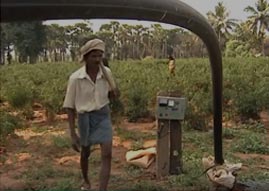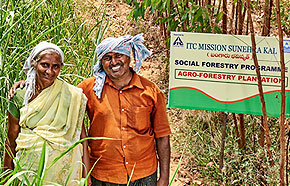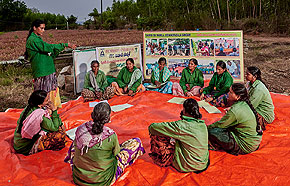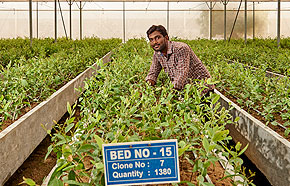Target Group: Economically disadvantaged small/marginal farmers who own low productivity lands
Mobilised to form Social Forestry Groups through which they receive comprehensive assistance to grow pulpwood plantations - loans, subsidised clonal stock, training in plantation management practices, etc.
Loans repaid to Group after first harvest to create corpus fund used to finance further plantation activity, develop community assets, emergency loans for Group Members so they do not have to resort to moneylenders, etc.
ITC is a willing buyer of pulpwood at prevailing market rates but plantation owners are free to sell to any buyer of their choice.
Agro-forestry = Food/cash inter-crops + pulpwood saplings on same plot of land in specific spacing pattern so as not to affect wood productivity, therefore annual income (inter-crops ) + Lump-sum income every 4 years (pulpwood trees)



















































